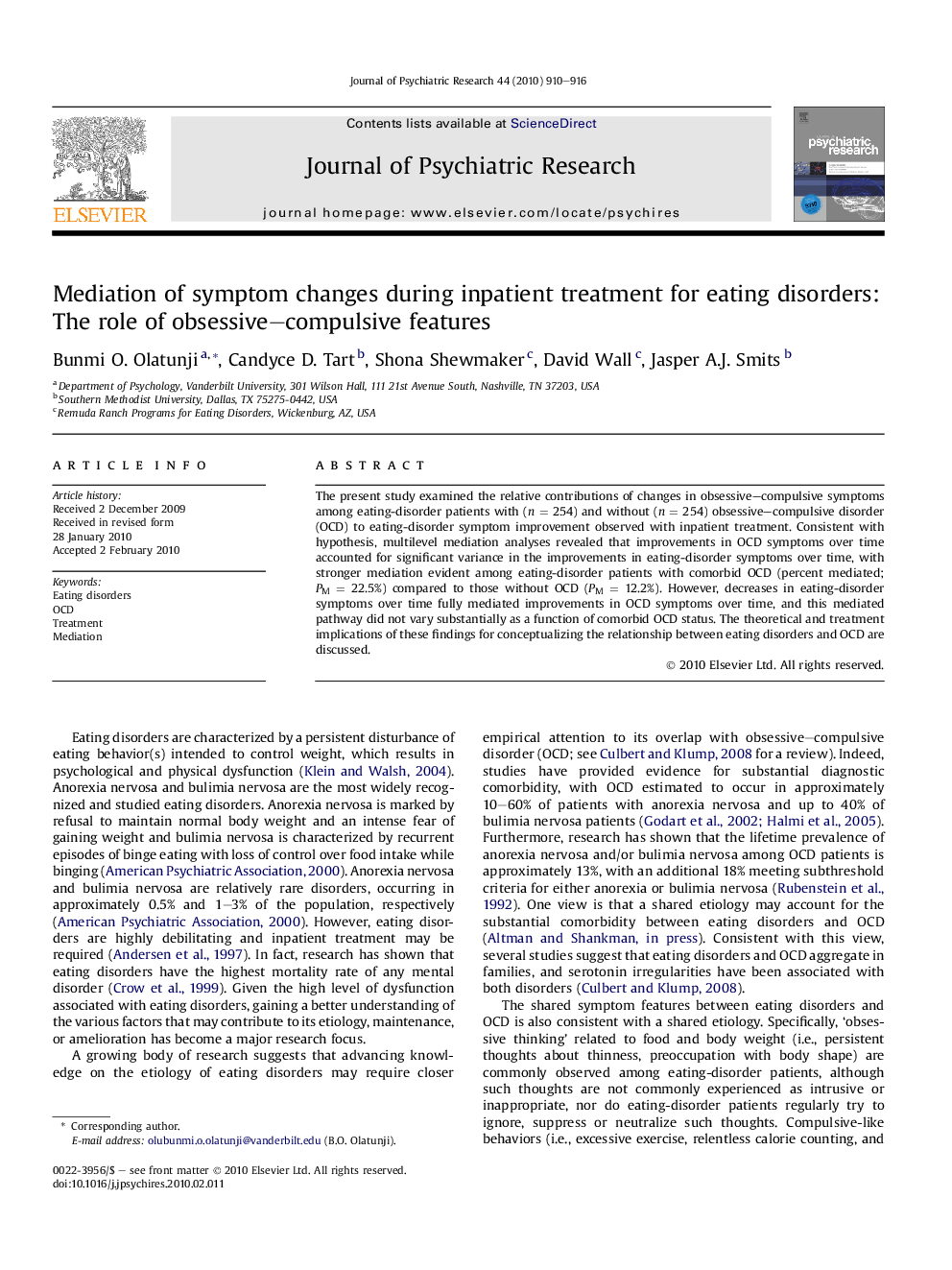| Article ID | Journal | Published Year | Pages | File Type |
|---|---|---|---|---|
| 327761 | Journal of Psychiatric Research | 2010 | 7 Pages |
The present study examined the relative contributions of changes in obsessive–compulsive symptoms among eating-disorder patients with (n = 254) and without (n = 254) obsessive–compulsive disorder (OCD) to eating-disorder symptom improvement observed with inpatient treatment. Consistent with hypothesis, multilevel mediation analyses revealed that improvements in OCD symptoms over time accounted for significant variance in the improvements in eating-disorder symptoms over time, with stronger mediation evident among eating-disorder patients with comorbid OCD (percent mediated; PM = 22.5%) compared to those without OCD (PM = 12.2%). However, decreases in eating-disorder symptoms over time fully mediated improvements in OCD symptoms over time, and this mediated pathway did not vary substantially as a function of comorbid OCD status. The theoretical and treatment implications of these findings for conceptualizing the relationship between eating disorders and OCD are discussed.
